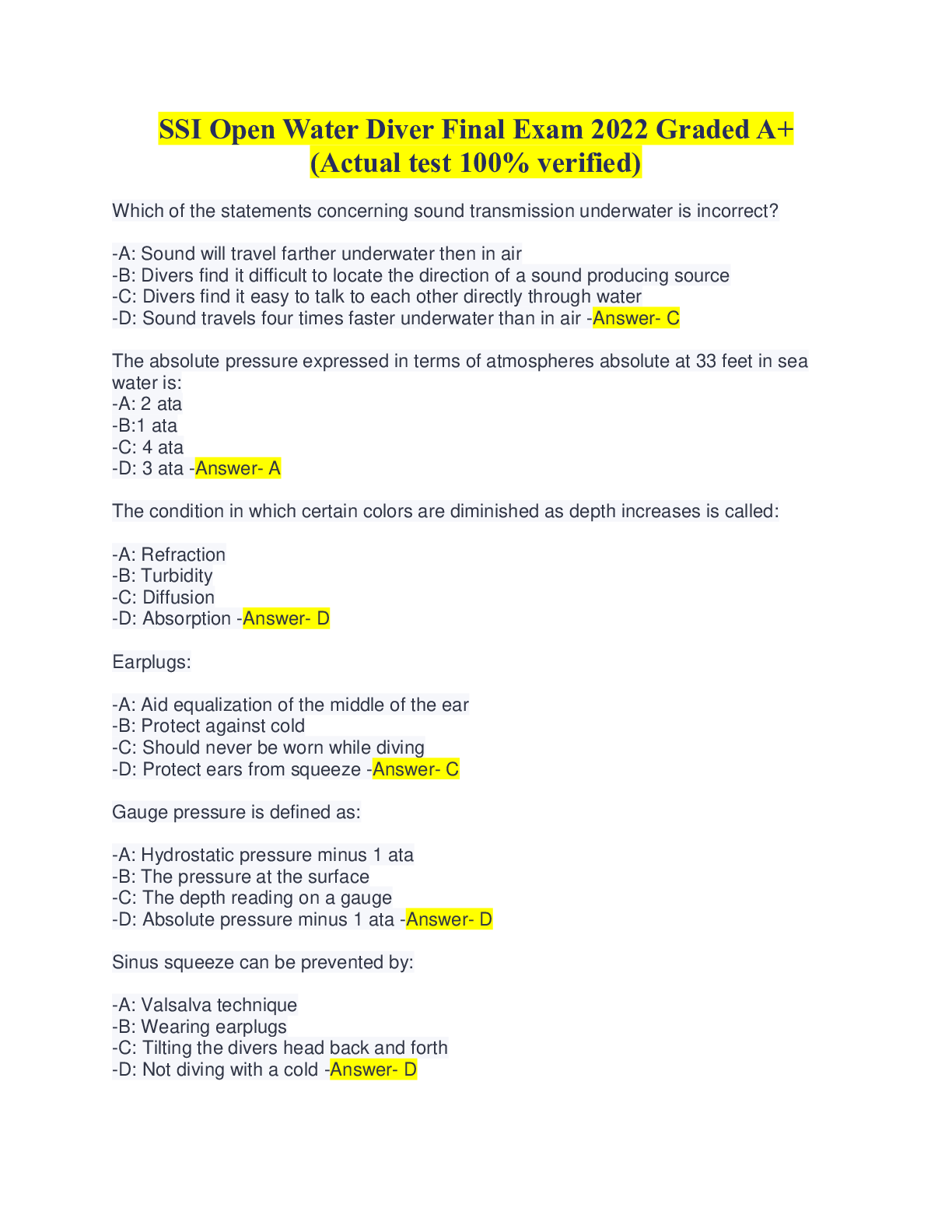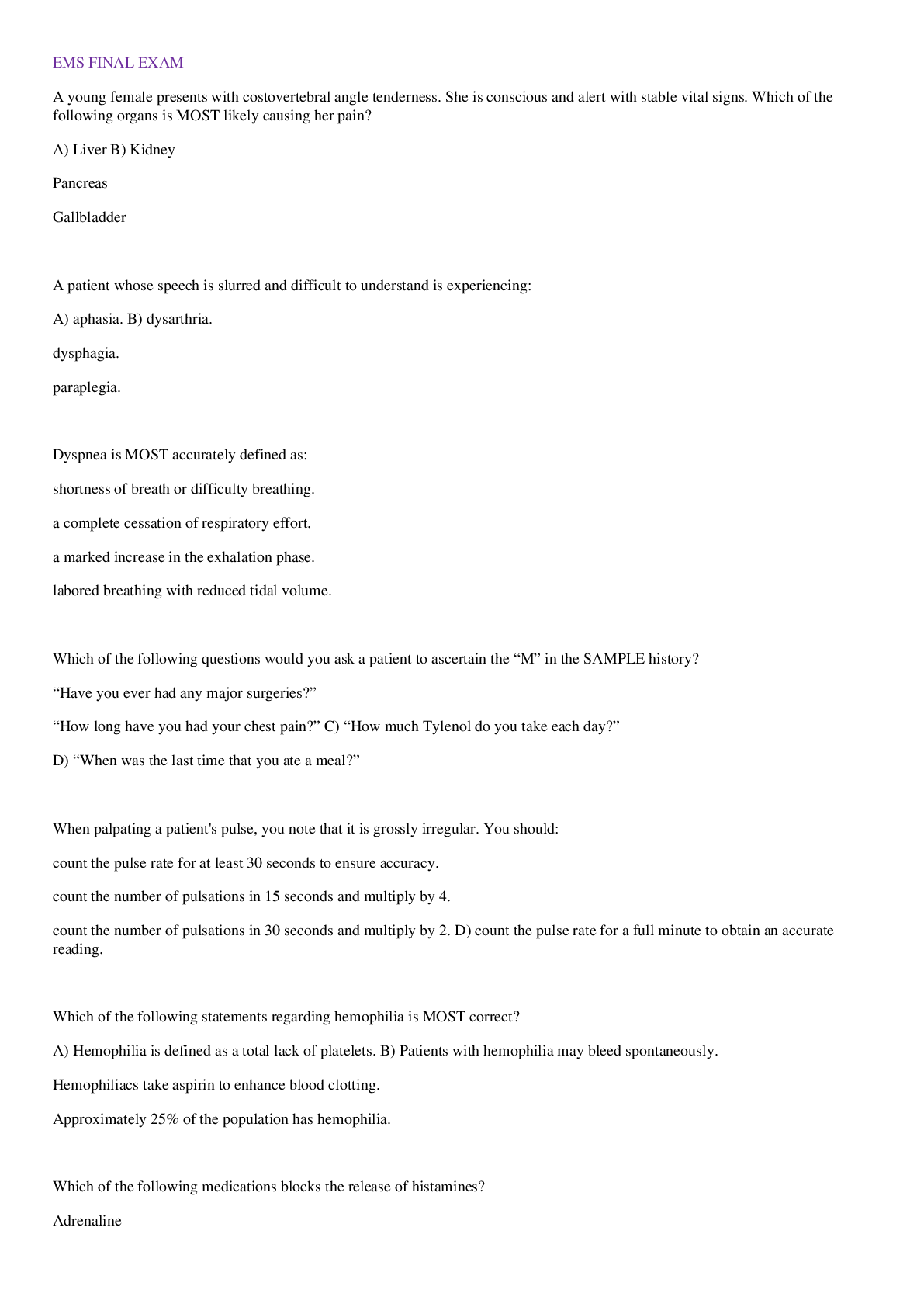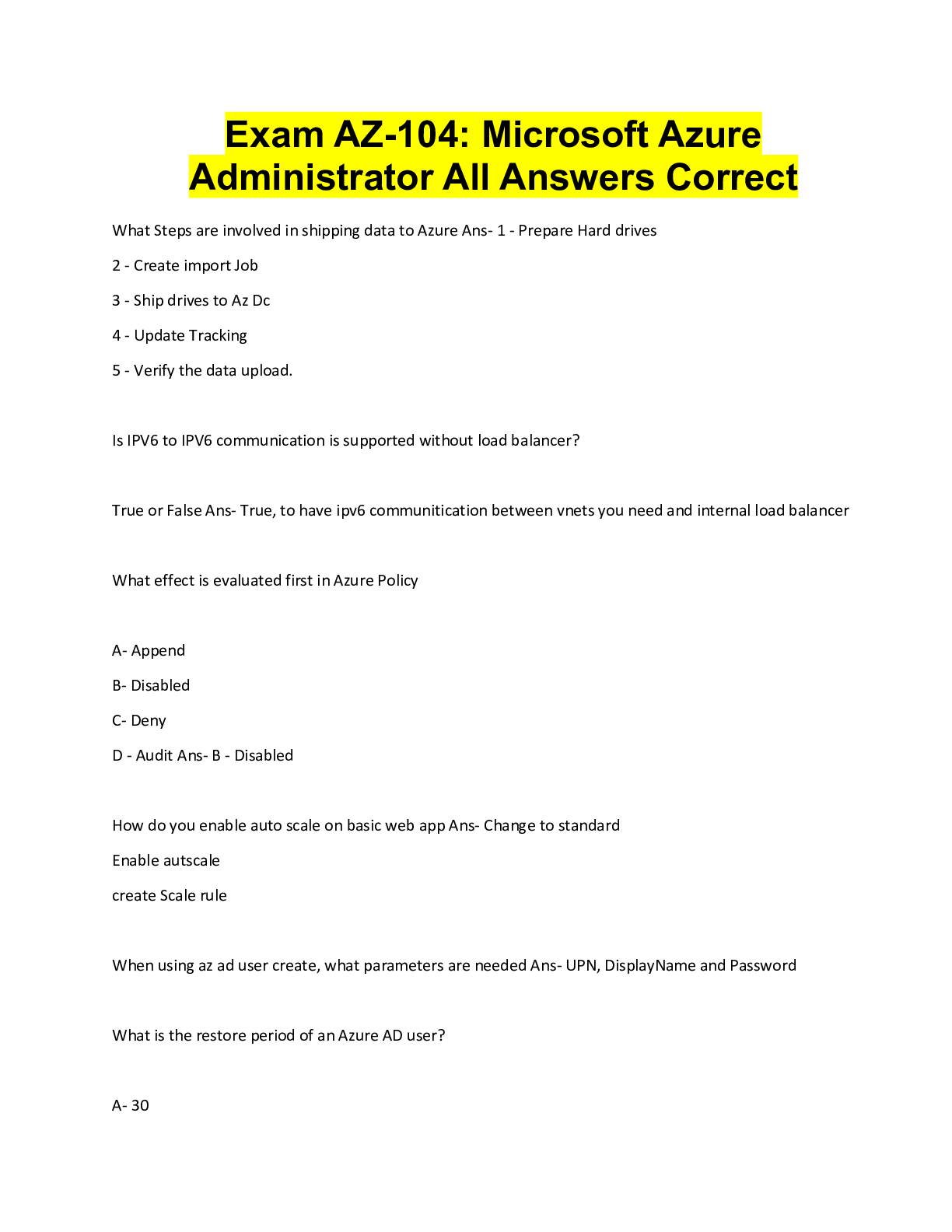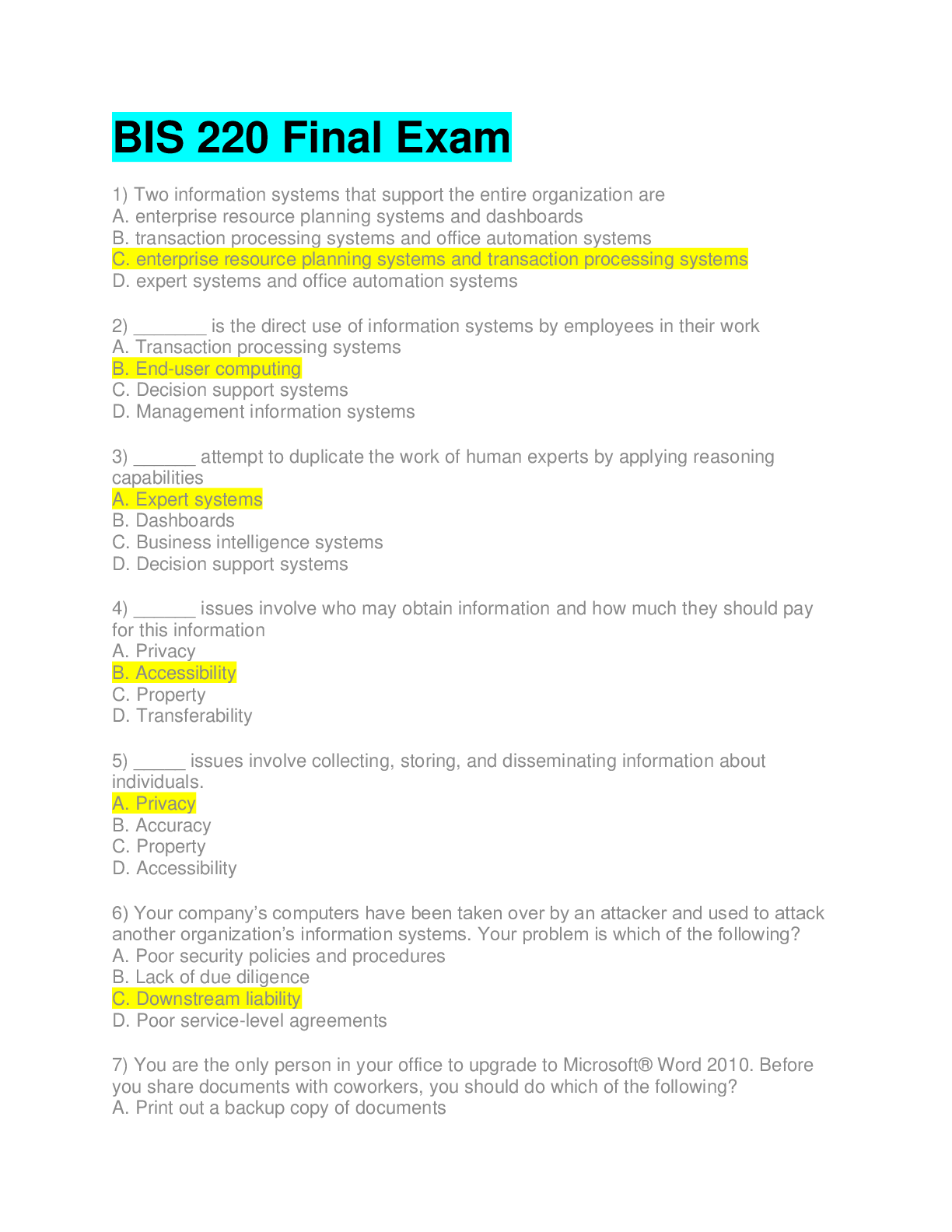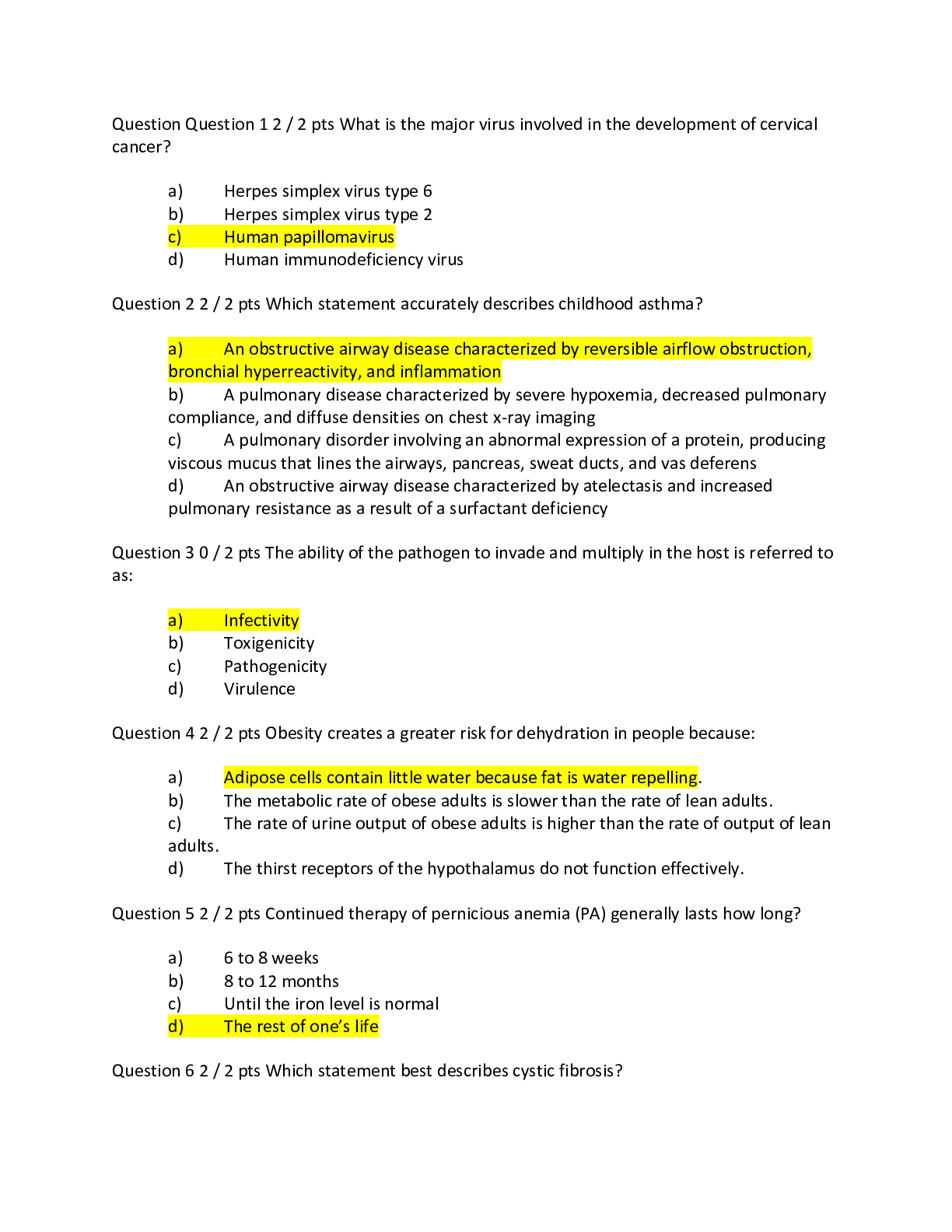Botany > QUESTIONS & ANSWERS > Plant growth and development final Exam Questions and Answers (All)
Plant growth and development final Exam Questions and Answers
Document Content and Description Below
Plant growth and development final Exam Questions and Answers The rise in mitotic activity precedes the increase DNA synthesis in the central zone during transition to a reproductive meristem becau... se -Ans-there are a number of cells in the cell cycle just following DNA synthesis waiting to divide. A leaf's fundamental role is -Ans-photosynthesis fruit are the structural entities resulting from the development of tissues supporting the ___________ -Ans-ovules Juvenility can be defined as -Ans-the initial period of plant growth when apical meristems will not respond to internal or external cues to initiate flowering Match the following growth patterns with their definitions -Ans-Annual Growth- the plants grown and reach maturity producing flowers and seeds in one growing season. Biennial Growth- The plant grows vegetatively the first year, initiates flowers the second year before flowering, setting seed, and dying the second year. Perennial Growth- The cycle of growth and flowering in repeated year after year with the plant surviving the winter by storage organs or with perenating buds Indeterminate Growth- There is no set endpoint for plant size Determinate Growth- when a shoot reaches a predetermined size the plant ceases to get larger. Radicle emergence involves cell growth and rupture of the tissues surrounding the embryo, but typically can involve _________ -Ans-cellular division Growth in plants that exhibit a continuous growth pattern is typically regulated by _____ and ______ -Ans-season, temperature The corpus of the apical meristem is divided into 3 zones -Ans-Central zone, peripheral zone, and rib meristem. Match the trophism to the correct external stimulus hydrotropism gravitropism phototropism thigmotropism -Ans-Hydrotropism water Gravitropism gravity Phototropism light Thigmotropism Touch Match the following with the correct phytochrome response int the plantRed light transforms.. far red light transforms.. phytochrome transforms in the dark from.. the active form of phytochrome is.. during long days there is an accumulation of .. short days allows the conversion of.. -Ans-Red light transforms phytochrome red to phytochrome far red Far Red light transforms phytochrome far red to phyrochrome red Phytochrome transforms in the dark from phytochrome far red to phytochrome red The active form of phytochrome is Phytochrome far red During long days there is an accumulation of Phytochrome far red Short days allows the conversion of phytochrome far red to phytochrome red The primary stages of embryogenesis are: -Ans-Globular, Heart, & Torpedo Leaves or leaf primordia are important to stem elongation because they are an important source of _______ -Ans-auxins? Plants detect their proximity to neighboring plants by measuring... -Ans-a decline in R:FR light ratio The two most important environmental factors regulating bud dormancy are -Anstemperature and lig [Show More]
Last updated: 2 years ago
Preview 1 out of 8 pages

Buy this document to get the full access instantly
Instant Download Access after purchase
Buy NowInstant download
We Accept:

Reviews( 0 )
$9.50
Can't find what you want? Try our AI powered Search
Document information
Connected school, study & course
About the document
Uploaded On
Aug 21, 2022
Number of pages
8
Written in
Additional information
This document has been written for:
Uploaded
Aug 21, 2022
Downloads
0
Views
136

